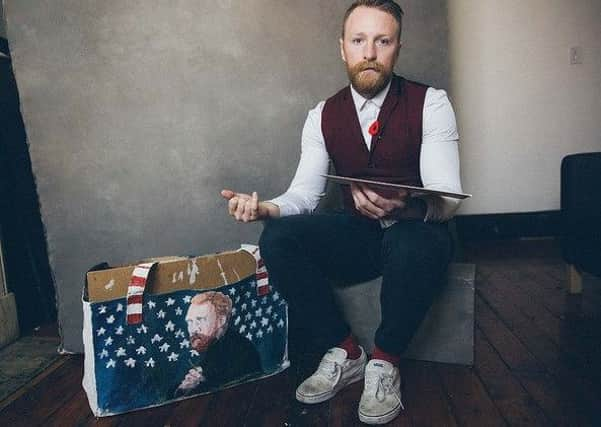We must push back on those who repeatedly misrepresent Northern Ireland as a contrived sectarian statelet


I was proud of our industrial heritage, our workers, artists, sportspeople, scientists and activists.
From Belfast Lough’s estuarine sludge our forebears engineered a hub that made and traded goods internationally. As David McWilliams said in 2014: “If you look back 150 years, Northern Ireland was the Silicon Valley of the world.”
Advertisement
Hide AdAdvertisement
Hide AdYet when I grew up, I saw that there were people who would assail Northern Ireland for its very being at every turn.
For more than a few people nothing but bad has happened since the arrival of the non-conforming Scots and English settlers, and their descendants only continued the misery.
From militant republican Alex Maskey calling Northern Ireland a “putrid little statelet” to moderate nationalist Colum Eastwood calling our special place a “contrivance”, to mainstream Dublin commentators misnaming Northern Ireland as a “colony”.
Not a day passes without someone on social media decrying that Northern Ireland was a “Protestant state for a Protestant people”.
Advertisement
Hide AdAdvertisement
Hide AdYet never is the pretext of that famous Lord Craigavon statement given.
Writing in the Oxford Dictionary of National Biography, George Boyce said of James Craig (Lord Craigavon): “His statement in 1934 that he stood for ‘a Protestant parliament and a Protestant state’ must be seen in the context of de Valera’s claim that ‘we are a Catholic nation’.”
This comment caused me to search online for the full Craig quote, which was uttered in a 1934 Stormont debate on the rights of the Catholic minority.
He said: “Since we took up office we have tried to be absolutely fair towards all the citizens of Northern Ireland. Actually, on an Orange platform, I, myself, laid down the principle, to which I still adhere, that I was prime minister not of one section of the community but of all, and that as far as I possibly could I was going to see that fair play was meted out to all classes and creeds without any favour whatever on my part.”
Advertisement
Hide AdAdvertisement
Hide AdAnother politician said: “What about your Protestant Parliament?”,
Craig replied: “The hon. Member must remember that in the South they boasted of a Catholic State. They still boast of Southern Ireland being a Catholic State. All I boast of is that we are a Protestant Parliament and a Protestant State.
“It would be rather interesting for historians of the future to compare a Catholic State launched in the South with a Protestant State launched in the North and to see which gets on the better and prospers the more. It is most interesting for me at the moment to watch how they are progressing.”
Almost as often the words of Lord Brookeborough are thrown in our faces — that he wouldn’t have a Catholic about the place. Yet once again, never are the awful words of Eamon de Valera remembered.
Advertisement
Hide AdAdvertisement
Hide AdDe Valera said during the War of Independence that Protestants were “not Irish people”, and in the Dail in 1930 he said that if he had a vote on a local body between a Protestant and a Catholic in a Catholic community he “would unhesitatingly vote for the Catholic.”
Northern Ireland was not an irredeemably miserable little “six county” statelet as so many would describe it.
At its birth it was part of a Union of 40 million British people enjoying self-government, positive and outward looking. And for many proud Northern Irish people that remains so today.
As we prepare for the centenary of Northern Ireland, not long away now, it is important to push back on those who repeatedly misrepresent Northern Ireland as a contrived sectarian statelet and a miserable colony.